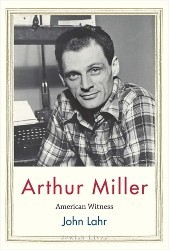Harvey Fierstein’s life reads like a fairy tale. Once upon a time, there was a bright Jewish boy in a working-class Brooklyn neighborhood who loved to sing along with cast albums of Broadway musicals. At the age of seven he pictured himself on stage singing “I’m Just a Girl Who Can’t Say No.” Now, sixty years later, he can look back on many theater accolades, including four Tony Awards — two for Best Actor, and two for Best Book of a Musical. He has written hit shows like Kinky Boots, Newsies, and La Cage aux Folles, and he was unforgettable playing Edna Turnblad in Hairspray, not to mention his numerous television roles.
The young Fierstein wasted no time finding a way into theater. He joined an amateur theater group while still in high school, receiving his first rave review at the age of nineteen. He was soon taken under the wing of Ellen Stewart, founder of the pathbreaking LaMaMa Experimental Theater, and worked briefly with Andy Warhol. By the age of thirty he had already won two Tony awards for his landmark Torch Song Trilogy, a play that changed the face of gay theater.
When Torch Song reached a wider audience through its film adaptation (1988), it arguably shifted American perceptions of homosexuality, as he no doubt had hoped. Fierstein, who had his first boyfriend at fifteen, joined the Gay Activist Alliance following the Stonewall riots of 1969 — while he was still in high school. He has since become one of the best-known advocates for LGBTQ visibility and inclusion in America.
Whether he’s talking about his personal relationships and gay life or chronicling American theater, Fierstein’s stories are so funny, arresting, and candid that you can’t wait to read the next chapter. He has known everybody who’s anybody in the theater, and he has backstage stories about dozens of marquee names. Fierstein worked with many of them in shows he wrote, and even the ones he didn’t, as when he starred as Tevye in a revival of Fiddler on the Roof. Yet despite all his success, he’s remained a fanboy at heart, thrilled to meet stage legends like Ethel Merman and Hermione Gingold.
Unlike some other theatrical eminences, he’s not shy about being Jewish. Recounting a film stunt where he dove from a boat into the water, he describes himself being “tossed like Yom Kippur sins into the sea.” He calls a fateful occurrence bashert.
A master of craft, Fierstein makes his points by showing, not telling. Rather than lecturing about acceptance, he recalls the mother who, learning that her son was gay, shockingly said it would have been better had he never been born. Reflecting on the AIDS crisis of the 1980s, he portrays the fear, the callous treatment of victims, and the experience of watching a friend descend into dementia before succumbing to the disease. His rich detail makes you feel as if you had been there. His tragic stories inspire sympathy, and his comic punchlines can make you laugh out loud.
It’s a joy to get to know this brave, gifted, devoted, funny, caring man through his vastly entertaining memoir. Harvey Fierstein’s I Was Better Last Night is an utter delight.
Bob Goldfarb is President Emeritus of Jewish Creativity International.





